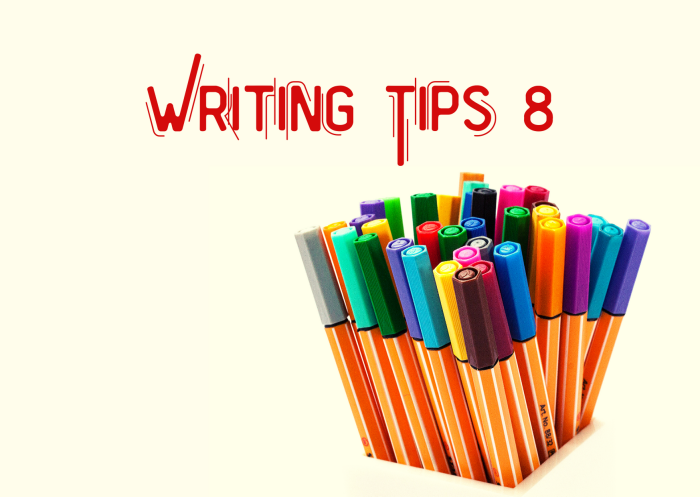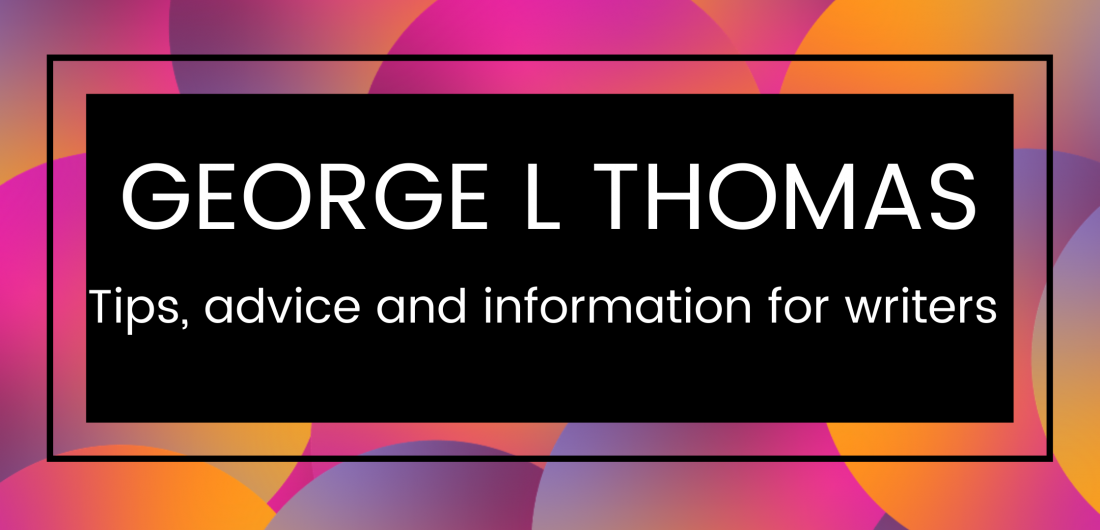
Hi everyone, it’s been a short while since I’ve written a Writing Tips post, so I carved out a chunk of time this afternoon, and that’s just what I did!
Don’t Underestimate your Readers
It’s rather easy to fall into the habit of describing each and every last bit of scenery, character appearance or plot point in great detail because as a writer, you really want the reader to see the word pictures you’re painting the very same way you see them in your head. The truth is, however, that readers are pretty good at filling in the blanks and working things out for themselves, all you have to do is give enough descriptive detail so that they get the essence of what you were trying to show; it doesn’t need to be exact, their own imagination will do the rest.
Make sure your Backstory is Relevant
We always want our readers to understand our characters and to know why they are the way they are and it can be easy to overload the reader with too much irrelevant backstory. Of course, backstory is important, but often, less is more. It’s a good idea to only add backstory which is relevant to the plot, for example, talking about how your main character hated school when they were growing up doesn’t matter at all unless that particular time in some way has an effect on how they have developed or behave in the present.
Don’t Ignore Feedback
When you give your story or your book out to beta readers or to anybody else whose opinion you value, it’s always good to take on board what they are telling you regarding the things they liked and disliked about it. You don’t necessarily have to make any suggested changes (unless you want to), but you should at least be willing to hear them out without disregarding their input right off the bat. You may find that suggestions they have made work well for you.
Don’t try to be Trendy
It’s not the best idea to write something simply because the subject of your story is ‘on trend’. Writing a book can be a fairly lengthy process and what may have been trendy when you started writing may very well not be by the time you have finished.
Write what you want to Read
If there is a story that you’d really like to read but hasn’t yet been written, then write it yourself. If you write the types of stories that you would like to read, then you’re far more likely to stay invested in the project and feel all the more satisfied when you’ve finished writing it.
Don’t be Afraid of a bad Review
All writers get bad reviews from time to time because, on the whole, people like different things. Not everyone will love your work, but on the plus side, not everyone will hate it either! If you do happen to find that your work is on the receiving end of a bad review, then allow yourself ten to thirty minutes to wallow in despair, then pull yourself together and get on with the next thing. It could also be a good idea to consider whether the person giving the bad review had any valid points.
Get Comfortable with Embarrassment
As writers, we sometimes need to include some elements and themes of a more adult nature in our stories, such as sex, violence and bad language, which can lead to feelings of embarrassment, knowing that people we know will probably read what we have written, or our mothers or grandmothers might see that we’ve used horrific swear words. It’s natural to feel this way, and many writers do, though the more you write, the less embarrassed about such things you’ll feel. It’s important to remember that your work is important, it is valid and you shouldn’t tame your voice or your work to please somebody else.
As always, thanks for reading my words, it really means a lot!
Until next time,
George
© 2018 GLT
Categories: Writing Tips

Great tips!
LikeLiked by 1 person
Thank you! 😀
LikeLiked by 1 person
#1 all the way! 😀 I want to do a whole post on that topic one day. Also, embarrassment is a very interesting topic, and really worth another post all by itself. I was told by my teachers that embarrassment is really a very useful signpost: when you’re writing, and happen on something that makes you squirm, then you know you’ve hit on a topic worth writing about. Thanks for the inspiration, George!
LikeLiked by 1 person
😀 you’re very welcome, Alice. I received very similar advice from a teacher.
LikeLiked by 1 person
“Get comfortable with embarrassment” is not a tip I’ve seen before, but it’s very true. I’ve seen writers get flustered about writing sexual scenes, and one even refused to tell his mother when he first got published because it was in an erotica anthology.
LikeLiked by 1 person
Yeah it’s worth it to just accept that you will, more than likely, write things that you’re mother might not appreciate, but at the same time it would be unrealistic to not include such subjects. Thanks for the comment! 😀
LikeLike
wonderful, very much useful. I will take it into account for writing my next story on my blog. Keep up the goodwork. God bless you.
LikeLike
Thank you, I’m glad you’ve found it useful 🙂
LikeLike